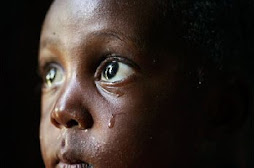Jan Raath in Chitungwiza
Harry is a former torturer. He is also at the heart of an experiment to bring peace and reconciliation to Zimbabwe.
Ten months ago, in the bloody run-off to the Zimbabwean presidential elections, he was a commander of a torture base for President Mugabe's Zanu (PF) party in the sprawling township of Chitungwiza, 20 miles (30km) south of Harare.
He was one of thousands of previously "untouchable" Zanu (PF) thugs who murdered as many as 180 people and tortured thousands to make sure that the election went Mr Mugabe's way. He controlled mobs of rampaging youths who sought out supporters of the Movement for Democratic Change (MDC) and subjected them to unspeakable torture.
Now, seven weeks after the establishment of the coalition Government between Zanu (PF) and the MDC, he cannot sleep at night for fear that his house will be burnt down in retribution. He says that he is so racked with guilt that he contemplates suicide. He is frightened to go to the grocery store. He will not accept a meal from anyone in case it is poisoned and often spends the night in the bush.
Harry talks only when we drive to a secluded spot far from the crowded, garbage-strewn street that he lives in. "Maybe one morning, I will wake up murdered," he says. "I know other people won't forget what happened."
They may never forget but there is some hope that they may forgive, thanks to a new reconciliation effort. Last October three researchers from the Catholic Commission for Justice and Peace (CCJP) in Zimbabwe began interviewing hundreds of torture victims. "It was just horrible," said Joel Nkunsane, a co-ordinator. "We were reopening the wounds. We were listening, then we would leave them in pain, without giving any help."
The church-funded organisation set up a reconciliation process in Chitungwiza, starting with a three-day group therapy workshop involving 17 victims. Getting Zanu (PF) perpetrators to attend was far more difficult but they managed to attract seven - one of whom was Harry.
"He was sweating and shaking when he started," said Mr Nkunsane. "The guilt with him is still there. He said what he did was evil, that he caused death and suffering. He and the others said they wanted to look into the eyes of their neighbours and stay in harmony. They want to go back and talk it out."
George Simango, 28, is the head of the MDC in one of the wards in Chitungwiza. On the night before the election, he was dragged out of his home and beaten and had boiling water poured over his back. Red-hot embers were shovelled into the T-shirt that he was wearing and he was forced to lie on it.
Mr Simango has kept the burnt T-shirt. "For the time, I cannot forgive," he said. "But revenge is not the way. The only thing I want is a law that they should confess, give details of what they did and who sent them."
Mr Nkunsane also believes that a public acknowledgement of the acts of violence - that goes right to the top of the political parties responsible - is critical for a process of reconciliation across the country, along the lines of the post-apartheid Truth and Reconciliation Commission in South Africa.
"I fear they may go for a process of blanket amnesty, call it a time of madness and say let bygones be bygones," he said. "If that happens, there is never going to be a time that we can have another election without bloodshed."
Subscribe to:
Post Comments (Atom)

No comments:
Post a Comment